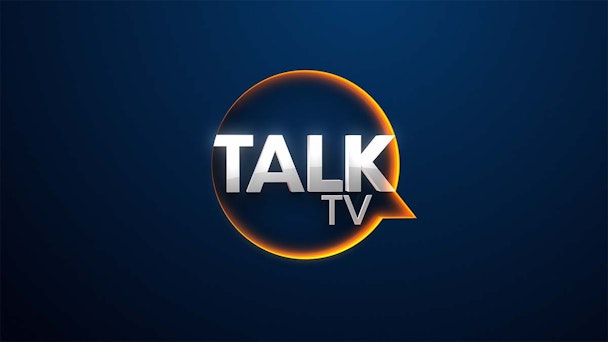TalkTV failed in linear. The lessons and reinvestment will buttress the business
Media consultant David Buttle analyzes the repercussions of News UK taking TalkTV off of linear TV this week.

News UK’s TV-styled news vertical TalkTV is to focus on online distribution, marking a wider shift in priorities across the industry. That it has done so after less than two years is undoubtedly embarrassing. However given how the channel has been received by the market, it represents a sensible shift to focus on the future model for its business. One that, for news outlets, must be defined by driving multi-media engagement on owned-and-operated digital platforms.
Launching a linear news channel in 2022 was always going to be difficult if viewed as a discrete commercial venture.
The costs of TV are notoriously high and linear viewership is in structural decline. Rolling TV news in the UK has never been profitable (Sky News was reported to be losing £15-20m a year in 2018, and market conditions have not improved). And, of course, TalkTV occupies a similar space to opinion-led GB News, which benefited from a first-mover advantage, despite its botched launch.
Advertisement
But nonetheless, that’s what it did. That it waited a year and a half between being granted the Ofcom licence and launching the channel perhaps indicates the uncertainty within the business. It’s been widely reported that the Big Man himself was insistent.
There were some reasons to think that it might have a chance. Firstly, and generally speaking, legacy businesses in structural decline can represent good value for owners. Usually, this entails cutting costs, minimizing investment and exploiting existing, cash-generating assets until they no longer deliver economic value.
While that’s not quite what happened here, existing assets were being used. The schedule was built around TalkRadio’s output which was simulcast across both channels. The investment went into the hourly news bulletins and primetime shows. Centrally this included ‘Piers Morgan Uncensored’ - airing at 8pm on weeknights.
Advertisement
Morgan has an impressive record of delivering audiences - albeit mostly in morning slots - as well as bringing substantial clout on social media and the ability to secure big-name interviewees.
But the TV viewers didn’t come. While clips were delivering strong audiences on social media - particularly Morgan’s Uncensored YouTube channel - it was still some way behind GB News in linear ratings. In December last year, TalkTV reached 2 million viewers whereas its rival was hitting just shy of 3. Growth has been anemic and it wasn’t really making headway. The fact that it sat so low on electronic programme guides didn’t help.
When Piers Morgan announced his decision to stop recording the live show last month (he’ll continue on YouTube), the business was faced with a decision. Continue to fund the linear TV slot, without the prospect of it growing substantially, or cut its losses and focus on what’s next. With the announcement this week it has chosen the latter. And rightly so.
All news businesses are facing an uncertain future as the next wave of technological disruption crashes upon us (thank you Mustafa Suleyman for the metaphor). We do not yet know with certainty how AI will impact the media. But it seems likely that it will disrupt traffic from search and AI chatbots will attract some engagement that would previously have landed on media owners’ own digital properties.
Suggested newsletters for you
News UK will continue streaming TalkTV, including through the growing CTV channels. But crucially, it plans to invest the money saved by axing the linear channel into a new division - News Studios - which will make multimedia content for all its brands. This feels strategically sound to me.
The surest way to defend against the risks of AI - or just to build a sustainable future-facing media business - is to drive engagement on owned-and-operated digital platforms. Right now - and until there’s a clear model for licensing content to AI firms - all forms of content monetization rely on that.
This means digital media properties will need to be destinations for users. They need distinctive brands with clear identities. And they need to provide reasons for their users to turn to their websites and apps instead of asking ChatGPT for the latest news. That might be intellectual games - as the New York Times has successfully done - or it might be native, branded audio/video content, as it seems News UK is doing.
News UK’s foray into linear TV was unlikely to succeed. And it hasn’t. But it should be applauded for trying. And while tactically it has failed, the capabilities it has built may help to buttress the business against the risks it faces in the years ahead.
David is an independent media and marketing consultant and outgoing director of platform strategy and public affairs for the Financial Times. You can reach him on djb@djbstrategies.com.

